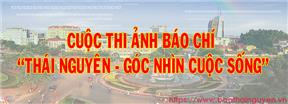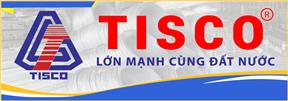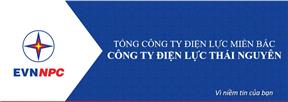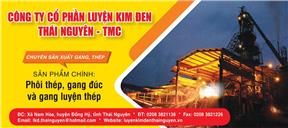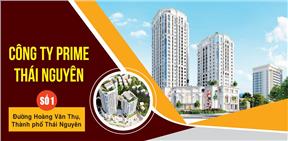Thai Nguyen''s National Assembly Delegation reports results of 2nd session
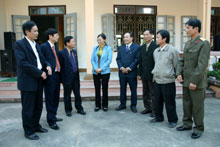
On Nov. 23–24, 2007, Thai Nguyen''s National Assembly Delegation met voters of Dinh Hoa, Dai Tu and Phu Luong district to report results of the 2nd session of the 12th National Assembly.
The delegation included Mr. Do Manh Hung, Vice Head of the Thai Nguyen''s National Assembly Delegation and Ms. Le Thi Nga, Vice Chairman of the National Assembly Judiciary Committee, Member of the Thai Nguyen''s National Assembly Delegation.
On November 21, the NA has completed its working agenda in the spirit of democracy, wisdom and high sense of responsibility. During the past 25 days, the lawmakers assessed the Government’s report on the implementation of socio-economic development tasks in 2007 and tasks for 2008, and the implementation of State budget allocations in 2007 and estimates for 2008. They adopted the legislature’s law-making programme for 2008 and the whole tenure till 2011, passed seven bills and made decisions on five other bills. They also completed question time involving seven Ministers and a Deputy Prime Minister.
They all agreed that Vietnam achieved a 10-year record high GDP growth rate this year despite difficulties and challenges caused by natural disasters, epidemics and the soaring prices of essential commodities. All macro-economic balances were ensured, development investment has developed significantly, and progress was made in socio-cultural affairs. The fight against corruption, the practice of thrift and the elimination of wastefulness obtained initial results. Expanded external relations elevated Vietnam’s role and position in the international arena.
However, the lawmakers said that the quality of economic growth remained low and unsteady. The high consumer price index badly affected production and people’s lives. Environmental pollution and many other pressing social issues were not solved effectively. There remained shortcomings in administrative reform, judicial reform and the fight against corruption and wastefulness.
The National Assembly adopted a resolution on socio-economic development tasks for 2008. Accordingly, Vietnam aims to achieve a high GDP growth rate of between 8.5-9 percent, increase the competitiveness of the national economy, develop the infrastructure system and improve people’s living conditions, striving to lift the nation from the list of low-income nations. It will fulfil its commitments to international economic organisations, improve the quality of human resources, accelerate the application of sci-tech advances, and effectively solve pressing social issues such as traffic accidents and congestion, environmental pollution while maintaining political stability, national defence, security and social order.
The delegates also informed voters on some bills and modified laws such as ones on amnesty, infectious diseases prevention and domestic violence prevention.
The voters in the three districts asked the NA to create preferential policy for local public security as well as concretize compulsory purchase laws and administrative reform.
On November 21, the NA has completed its working agenda in the spirit of democracy, wisdom and high sense of responsibility. During the past 25 days, the lawmakers assessed the Government’s report on the implementation of socio-economic development tasks in 2007 and tasks for 2008, and the implementation of State budget allocations in 2007 and estimates for 2008. They adopted the legislature’s law-making programme for 2008 and the whole tenure till 2011, passed seven bills and made decisions on five other bills. They also completed question time involving seven Ministers and a Deputy Prime Minister.
They all agreed that Vietnam achieved a 10-year record high GDP growth rate this year despite difficulties and challenges caused by natural disasters, epidemics and the soaring prices of essential commodities. All macro-economic balances were ensured, development investment has developed significantly, and progress was made in socio-cultural affairs. The fight against corruption, the practice of thrift and the elimination of wastefulness obtained initial results. Expanded external relations elevated Vietnam’s role and position in the international arena.
However, the lawmakers said that the quality of economic growth remained low and unsteady. The high consumer price index badly affected production and people’s lives. Environmental pollution and many other pressing social issues were not solved effectively. There remained shortcomings in administrative reform, judicial reform and the fight against corruption and wastefulness.
The National Assembly adopted a resolution on socio-economic development tasks for 2008. Accordingly, Vietnam aims to achieve a high GDP growth rate of between 8.5-9 percent, increase the competitiveness of the national economy, develop the infrastructure system and improve people’s living conditions, striving to lift the nation from the list of low-income nations. It will fulfil its commitments to international economic organisations, improve the quality of human resources, accelerate the application of sci-tech advances, and effectively solve pressing social issues such as traffic accidents and congestion, environmental pollution while maintaining political stability, national defence, security and social order.
The delegates also informed voters on some bills and modified laws such as ones on amnesty, infectious diseases prevention and domestic violence prevention.
The voters in the three districts asked the NA to create preferential policy for local public security as well as concretize compulsory purchase laws and administrative reform.








